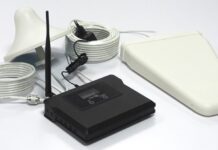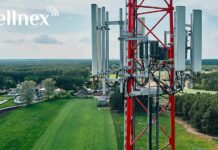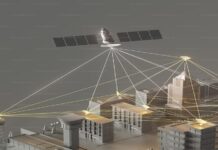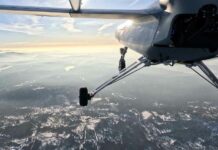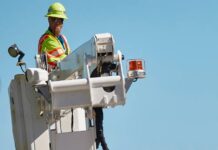EE, part of the BT Group, is deploying Ericsson’s latest ultra-lightweight radio technology to deliver improved 5G energy efficiency and network performance across the UK.
With up to 40 percent less weight (14kg) and volume (25 litres) than the previous generation of radio, Ericsson’s AIR 3268 is the lightest and smallest Massive MIMO radio in the industry and is also the most energy efficient radio of this type deployed in Europe. Field measurements in active deployment have shown a reduction of up to 40 percent in energy usage, helping to deliver improved energy efficiency and contributing to wider sustainability goals.
Operating within EE’s 3.4GHz and upper 3.6GHz spectrum bands, the new radio will initially be deployed over 1,000 sites, not only offering substantial energy efficiencies but also improving capacity, coverage, speed and mobile experience for customers. The reduced size and weight benefits of the equipment, initially developed in partnership between the companies last year, mean that accelerated 5G upgrades will now be possible in areas previously constrained by building regulations or planning law.
EE’s first deployments of the equipment are in London, with sites in Manchester, Leeds, Edinburgh, and Belfast to follow this year. The improved technology will be expanded to more urban and suburban areas in the future, where Ericsson is a key partner for EE.
Greg McCall, Chief Networks Officer, BT Group, said: “We’ve already made significant progress in making EE a more efficient network, delivering vast quantities of additional data without equivalent energy increases. Our partnership with Ericsson is a further milestone in this journey, enabling us not only to accelerate our 5G roll-out in city centres, but to do so in a more sustainable way. That’s good for us, but also incredibly important to our customers and the planet.”
Björn Odenhammar, CTO, Networks and Managed Services, Ericsson UK and Ireland, said: “It is incredibly exciting to see our partnership with BT Group succeed with such fantastic results. This is a great step forward for the deployment of 5G in the UK and gives a much-needed boost in both 5G coverage and mid-band performance. Together we are not only leading the delivery of next-generation connectivity across the country, but also reducing energy consumption to build a more sustainable mobile network of the future.”
Background:
The deployment of AIR 3268 has been the result of a long-term development partnership between BT Group and Ericsson to address 5G deployment challenges. First announced in September last year, the ultra-lightweight radio equipment has been designed for 5G mid-band Massive MIMO performance to deliver the benefits of spectrum efficiency, deployment flexibility and improved energy efficiency.
As part of the collaboration with Ericsson, EE is also testing more advanced equipment in the future, including a new software feature called ‘deep sleep’ which can save energy by consuming up to 70 percent less power per radio during low traffic hours. The two companies are committed to continually evolving the network in the most sustainable way possible.



